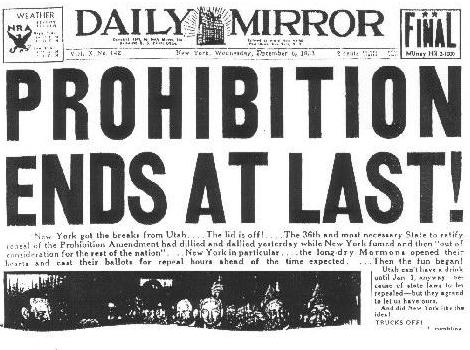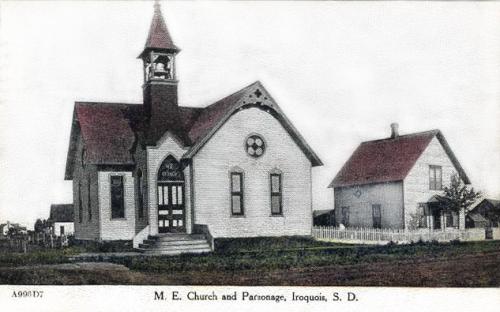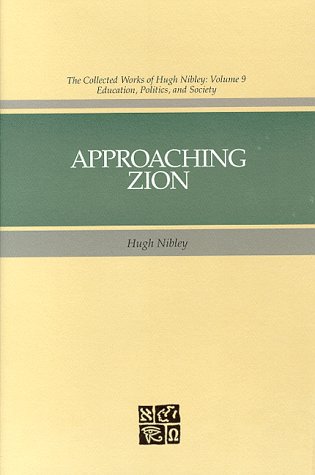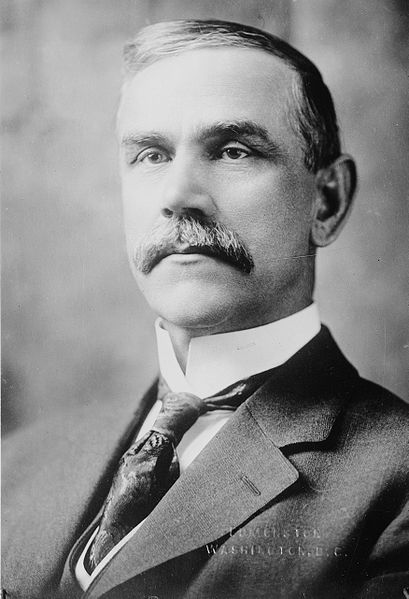Category: Bloggernacle+
-

The Poisoning of Deseret
One biographer of the famed British composer and ethnomusicologist Ralph Vaughan Williams posted a question – how could Vaughan Williams be both a socialist and a nationalist at the same time? One tended towards trying to eliminate boundaries and differences while the other tended toward glorying in boundaries and difference. He answered through two different…
-
Radical Orthodoxy
I swore off writing manifestos 20 years ago as bad business with no profit in it. Why would I sign this one?
-
Remembering Clark Goble
This hit my inbox this afternoon: In case you hadn’t heard, Clark Goble just passed away from a stroke.
-
In Dialogue: The Best of Ten Years of Mormon Blogging
The Summer 2014 print issue of Dialogue arrived in my mailbox last week. Among other fine articles is a ten-year look back at Mormon blogging by Dialogue Web Editor Emily Jensen. The article consists of about 70 paragraph-length quotations from selected Bloggernacle posts over the years, in ten categories: theology, homosexuality, feminism, race, Mormon studies,…
-
As Instructed
On Tuesday, Ally Isom, Senior Manager of Public Affairs with the LDS Church, encouraged listeners to have respectful conversations about their concerns with and faith in the Church.
-

Decriminalizing Polygamy (and, of Course, Tax)
On Friday, December 13, the Judge Waddoups, a district court judge in the District of Utah, held that Utah’s criminalization of polygamy was unconstitutional. Partly, anyway. More on that in a minute. I suspect that this opinion will reverberate throughout the blogosphere and the mainstream media, with the reporting displaying various levels of accuracy. The…
-

Happy(?) Repeal Day!
The Twitters tell me that 80 years ago today, Utah became the 36th state to ratify the 21st Amendment, thus ending Prohibition. Whatever you think about Prohibition, it’s probably worth noting the Pres. Grant was not a fan of its end. In fact, he addressed the end of Prohibition—and Utah’s role in ending it—at General…
-

Money for Nothing and the Housing for Free
On Thursday, November 21, the district court of the Western District of Wisconsin declared (part of) the parsonage exemption—a special tax provision for certain religious persons—unconstitutional.
-

Personal (Bloggernacle) History
Sometime in late 2003 or early 2004, Steve Evans told me I needed to check out his[fn1] website: rameumptom.blogspot.com. At the time, the nascent bloggernacle was so young that By Common Consent didn’t yet have a name (I think the name was voted on sometime during that first year). He may have also pointed me…
-
Times and Seasons: The First Year
Ten years is a long time, even in the real world. When Adam put up the first Times and Seasons post on Nov. 19, 2003, there was no WordPress. There was no Bloggernacle. There were just six T&S permabloggers (Nate, Matt, Adam, Kaimi, Greg, and Gordon) and a handful of commenters. Those were the days.…
-

Bless This Food
So I had every intention of posting the next installment in the Approaching Zion Project today. But Labor Day weekend (and, specifically, houseguests, the Chicago Jazz Festival, and a Cubs game) intervened and, well, I’m not ready. But Monday night’s dinner with our guests brought up a question, and I thought I’d ask for an…
-

The Approaching Zion Project: Work We Must, but the Lunch Is Free
As summer ends, my time to engage with Nibley’s social criticisms has begun to return. Of course, I say that the week before classes begin, so a couple things I want to point out before we get started: first, this is a long, detailed chapter.
-
Invite the IRS to Your Family Reunion
Over at Keepaptichinin, Amy Tanner Theriot has a wonderful post talking about family associations, and providing some guidelines for how to put together a successful association. In the post, she mentions that family associations can qualify as 501(c)(3) tax-exempt entities. At the mention of Code sections (and revenue rulings!), my ears perk up, and I…
-

-

A Good Samaritan, Chicago-Style
Yesterday, the Art Institute had a family program tied into its new exhibit, Impressionism, Fashion, and Modernity. The Art Institute’s family programs are inevitably excellent, so we decided to bike down, look at the exhibit, and then let the kids make the related art. The museum’s about 6.5 miles from us on the Lakefront Trail and, even…
-

King Noah’s Blues
I could see them before I crossed Michigan Avenue into Grant Park. There were probably five of them, holding big yellow signs with blocky letters, Bible verses. It seemed out of place, fifty feet in front of the entrance to the Chicago Blues Festival, but maybe I just didn’t understand the logic behind it. I…
-
Tracy McKay fMh Scholarship
Our sisters and brothers in the bloggernacle have turned their virtual relationship into doing tangible good for those in need. Yesterday, Lisa at fMH announced the Tracy McKay fMh Scholarship. I remember last year when Tracy’s ward financial assistance was cut and the immediate action by her fellow bloggers to raise enough money to get…
-
Authenticity and The Book of Mormon
I know, I said a year and a half ago that I wasn’t going to see The Book of Mormon. But then it came to Chicago and, in spite of the fact that it is sold out through at least March, a friend set me up with a ticket. So I’ve now seen the show.…
-

A Mission Story: Tigre
I met Tigre pretty soon after arriving in my second area. He was a solid man, all muscle but his midsection. As I got to know him, I learned that both his muscle and his gut were well-earned. The muscle because Tigre taught karate for a living, and owned his own studio. The gut? You…
-
An Immodest Proposal
As Sarah noted, Saturday and Sunday bring us our Fall semiannual General Conference. As part of our twice-yearly ritual, we’ll hear the Mormon Tabernacle Choir up to three times: one session of Conference Saturday, one session Sunday, and the Music and the Spoken Word broadcast before the first Sunday session.








